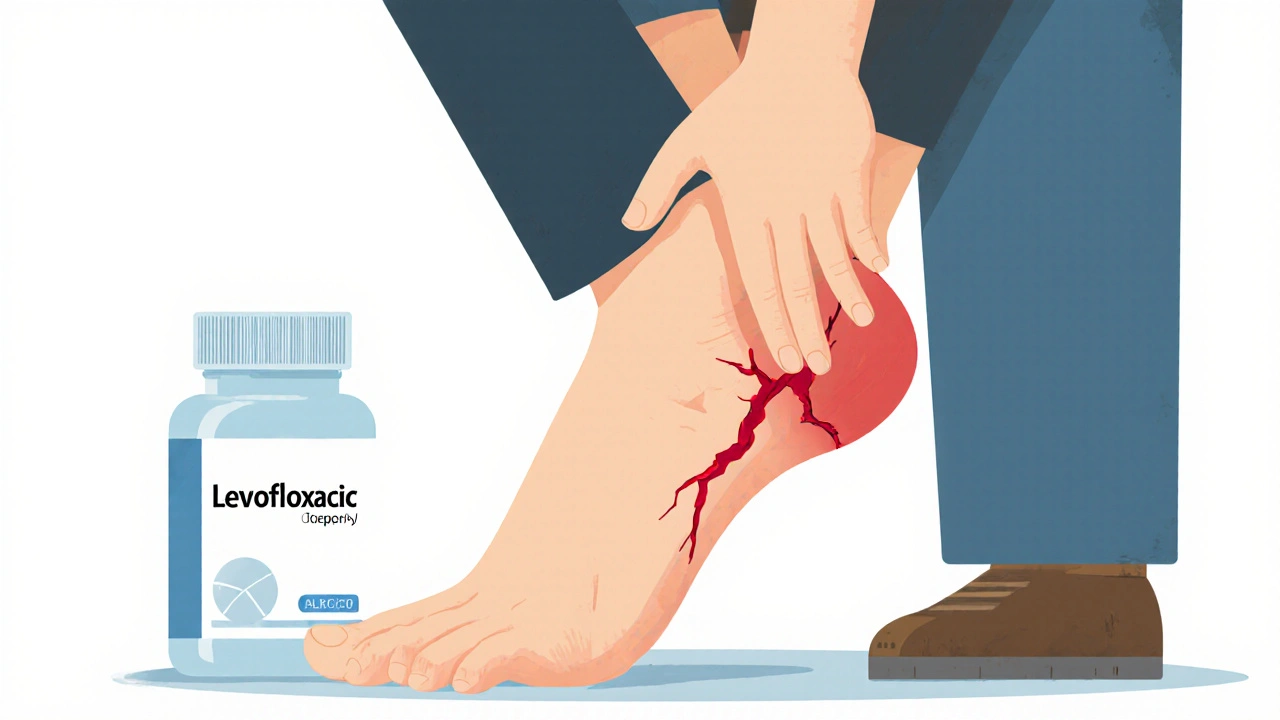Tendon Rupture: Causes, Signs, and Medications That Can Raise Your Risk
When a tendon rupture, a complete tear of the tough fibrous tissue connecting muscle to bone. Also known as tendon tear, it often happens during movement—like jumping, sprinting, or even just standing up too fast—and leaves you unable to use the affected limb. It’s not always from a big injury. Sometimes, it’s the quiet result of something you’ve been taking for weeks or months.
Some common medicines can quietly weaken tendons over time. Fluoroquinolone antibiotics, a class of drugs like ciprofloxacin and levofloxacin used for infections are known to increase tendon rupture risk, especially in people over 60 or those on steroids. Corticosteroids, powerful anti-inflammatory drugs often given as shots or pills for arthritis or allergies do the same—breaking down collagen in tendons so they become brittle. And if you’re taking both? Your risk jumps even higher. You might not feel pain until it’s too late. A simple step off a curb, a quick reach for something on a high shelf, or even coughing hard can trigger the tear.
Early warning signs are easy to miss. You might feel a dull ache near your heel, shoulder, or wrist that doesn’t go away. Swelling, stiffness, or a feeling of warmth around the joint can show up before the big snap. If you’ve been on one of these meds and notice new, unexplained discomfort in a tendon area, don’t brush it off. It’s not just aging. It’s not just overuse. It could be your medication quietly working against you.
What you’ll find in these articles isn’t just theory—it’s real cases, real risks, and real choices. From how certain antibiotics and painkillers silently weaken tendons, to what to do if you’re already on a high-risk drug, to how to protect yourself while still treating your condition. No fluff. No guesses. Just what you need to know before your next prescription.
